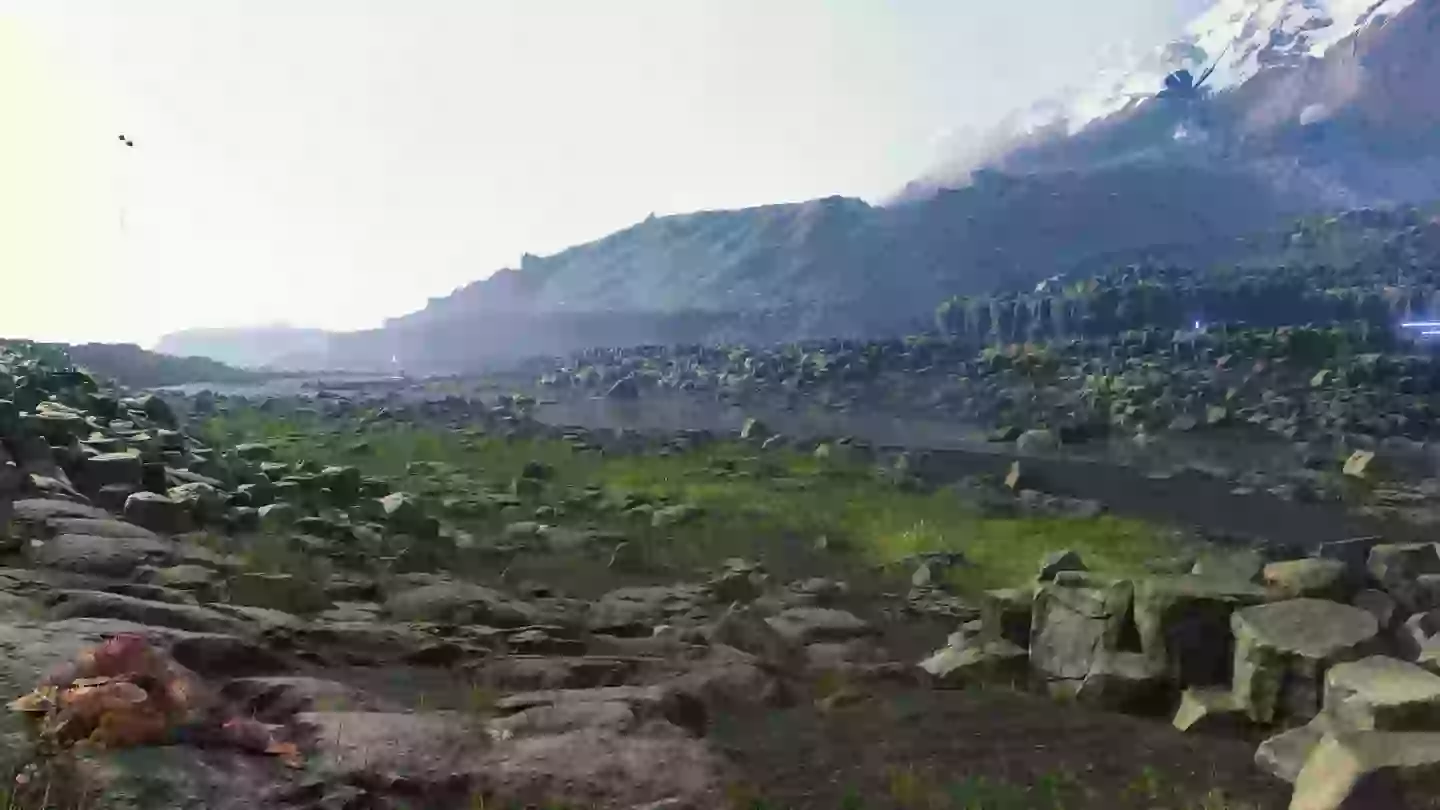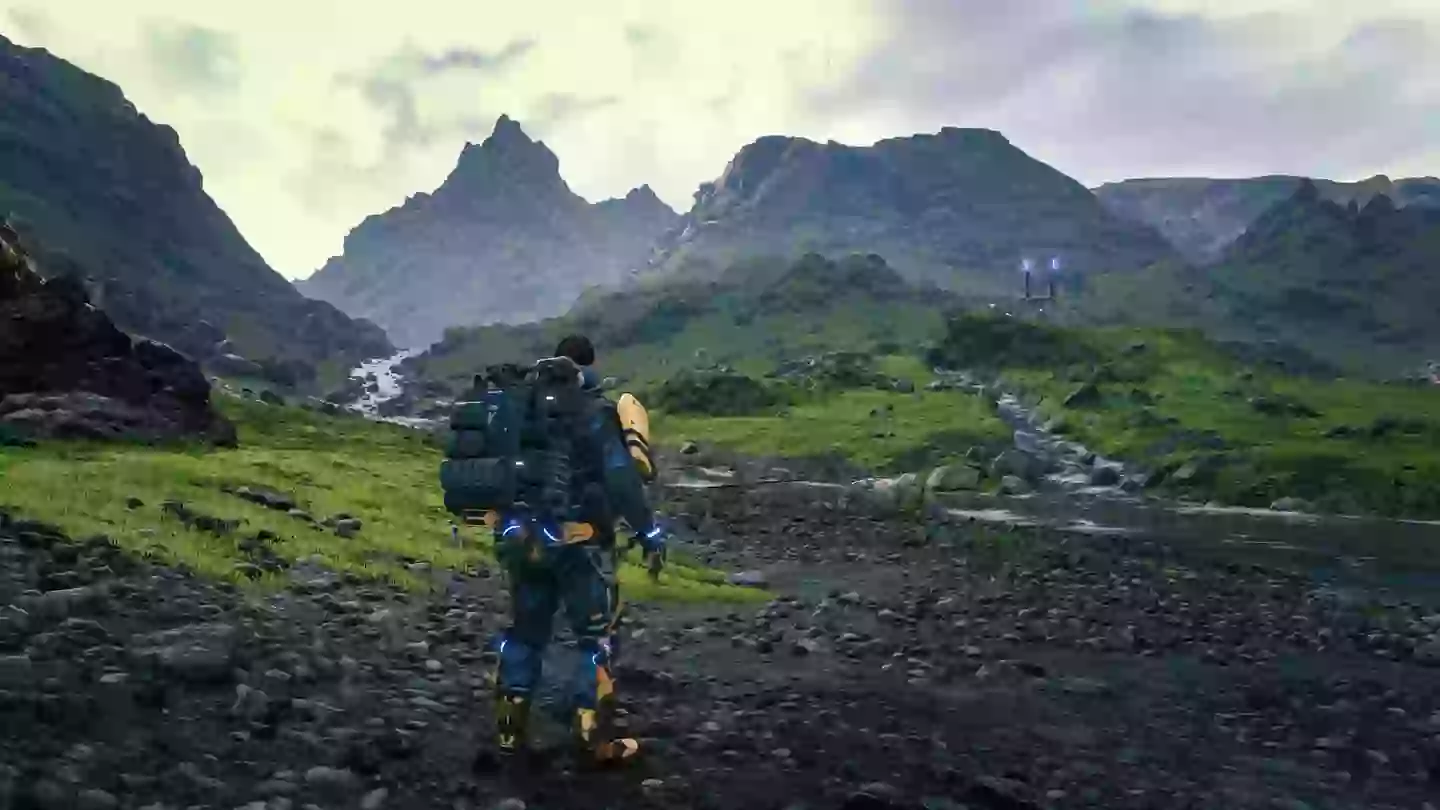
The past week has been incredibly difficult for me. I don’t say this to evoke any kind of sympathy, but to set up a scenario. Life has, as it will, dealt me a bit of a rubbish hand of late. I struggled to find joy in what I was playing, I couldn’t focus particularly. I didn’t want to escape my thoughts but conjure a place where I could move through them in one part of my brain, while keeping the other part engaged in a simple task.
This is where Hideo Kojima’s esoteric walking simulator, Death Stranding came in. I’d tried to play the game upon release only to get overly frustrated with the combat when all I wanted to do was happily deliver packages in a barren land devoid of people. I never finished the game back then and while I’m determined to do so this time around, I really only wanted to play so I could walk through the astonishingly beautiful fallout of wasteland America.
I live smack bang in the middle of a city, so nature is hard to come by without walking miles to reach it and usually by the time I get somewhere green I’m already knackered and wanting to go home.
Advert
So, instead, I downloaded Death Stranding: Director’s Cut, which is avaiable as part of my PlayStation Plus subscription. After speeding through the opening hour I got to what I wanted. I loaded Sam, played by Norman Reedus, with plenty of packages and set off into the wilderness.

There’s something remarkably beautiful about the world Kojima Productions created here. When taking the first few steps of a long journey the camera pulls out a little, a song begins playing - with the title and artist displayed - and you settle into the walk. It feels rather pretentious, at first. As with most of Kojima’s output, there’s a sense of the auteur here. There are big ideas playing in the background but what he and his team nailed is the sense of discovery without there being anything obvious to find.
What I mean by this is, just finding a trickling stream that bissects your proposed path feels like a big discovery because it’s an obstacle to tackle. At first, you feel like you’re the only person to ever bridge this section of river. Then, as time goes on, you realise that others have passed through, made bridges, and struggled along. This is exactly what my brain needed this past week - here’s a small and manageable obstacle and here’s a simple way to overcome it, with a ladder. Or, by relying on the help of another.
Advert
So, there I am wandering through craggy rocks, occasionally stumbling my way through sharp, volcanic outcroppings of stone so symbolic of the way life currently feels. Stumbling is fine, I soon catch myself before falling flat. And all the while I’m ticking through life’s struggles in my head.

It really is a truly beautiful game, too. The richness of the environment comes through in the tiny details. No one path ever feels the same even when it has been trodden countless times. Signs of life that weren’t there previously have appeared via the online connection, but even what was laid down by Kojima Productions is lush - particularly on PlayStation 5.
Vibrant greens, plants that feel like they breathe if you look at the for long enough, water that looks both inviting and bitingly cold, even the steady patter of rain, which is so dangerous in-game, feels like a welcome touch of nature. And all the while I’m plodding along, nudging my thoughts along like the beads of an abacus.
Advert
I’ve always been a strong supporter of using video games as a coping mechanism. Some people reach out to fidget toys to calm their thoughts, others go to the gym, I’ve always fallen back on repetitive actions in video games. Usually, this would be through roguelikes or cosy games where I can repeat certain actions, allowing my brain to be cognitively distracted while I work through difficult thoughts.
This is where Death Stranding helped. Once the game’s tasks had run dry or I didn’t want to retread the same route, I could branch out and go it alone. I’d set a route through the game’s version of American countryside creating points on the map. I’d avoid conflict areas that would disturb the sense of escape and just start putting one foot in front of the other.
For me, when my mind is so clouded with problems, I find it hard to remember that other people have struggled with the exact issues I’m having. So, while it might be a bit ‘on the nose,’ wandering through the world of Death Stranding helped me not only collect my thoughts, but realise that life isn’t a path we walk alone. Even if that realisation comes by reaching a large expanse of dangerous rocks only to find someone has built a bridge.

Advert
It may sound trite but it has helped. The anxiety I felt from life began to slowly disappate, the physical symptoms - trembling, shortness of breath, headaches - started to ease. I’m not saying this is a cure, I still have these problems, but because I was, in part, constructively distracted, I could slow my breathing, take a moment, and work through the chaotic thoughts in my head.
While I want to say this probably wasn’t Kojima’s intentions, it quite clearly is. The game does bash you over the head with the symbolism of a problem shared is a problem solved. And perhaps that’s why it helped so much.
Topics: PlayStation, PlayStation 4, PlayStation 5, Playstation Plus, Death Stranding, Kojima Productions
